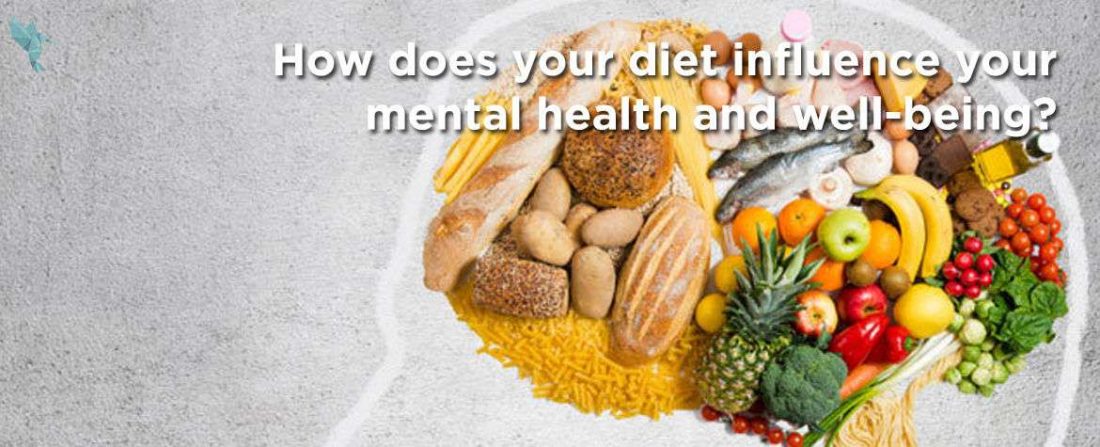
How does your diet influence your mental health and well-being?
In the modern western culture, the links between diet and physical health have been made quite clear because of extensive research and studies. We learn from an early age that vegetables and fruits are healthy, and processed fast food is bad for you. The number of studies and experiments such as the well-known movie “Super Size Me” show what impact a carbs and fats rich diet will have on your body and physical health. In order to pursue good health and a healthy lifestyle we try to stay away from junk and fatty foods, but is simply avoiding them enough for the ideal well-being? Have you ever felt down, out of energy, anxious or unable to focus without any apparent reason? If yes, this post may give you a few answers to those issues!
As you probably know, the human body is a very complex organism. It has been studied for ages and we still don’t know everything about it. Quite recently there are more and more scientific studies investigating the link between the diet and mental health/well-being. Not surprisingly, it turns out it is not enough to only stay away from the unhealthy foods. To be healthy and feel well a human body needs a whole variety of different nutrients that sometimes are missing in our daily diets. To avoid a number of problems mentioned before, here are few nutrients which will definitely impact your mental well-being in a positive way!
Omega-3 fatty acids
It is not a secret that omega-3 fatty acids found in fish, seafood, some plants and nut oils influence mood, memory, behaviour and personality. People who have low levels of omega-3 in their system usually have problems with depression, impulsivity and pessimism. In the modern western culture, people consume much more omega-6 fats which are found in poultry, eggs, baked goods and cereals. The unequal intake of these fats contributes to concentration and memory problems in both young and adults. In 2010 Paul Amminger from the University of Melbourne conducted a study which aim was to investigate whether the omega-3 fats could play a role in preventing psychotic disorder in those most at risk. The results were quite astonishing: 4 out of 41 subjects who took fish oil capsules for 3 months have developed a psychosis in the next seven years. Out of 40 people who received placebo 16 developed a serious psychosis later on in their lives. As Amminger said himself “Eating more fish is not only likely to be good for your physical health but also for your mental health”.
Folic acid and vitamin B-12
Folic acid and vitamin B-12 play an important role in metabolism, blood cell production and proper functioning of the brain. Deficiency of those two chemicals is associated with depressed mood. Increasing intake of folic acid and vitamin B-12 can increase responsiveness to medication in patients suffering from depression. The natural sources of these compounds include leafy greens, fruits, meats, nuts and sprouts.
Iron
Iron deficiency is one of the main nutritional problems in the modern era, affecting over 2 billion people worldwide. It is most common among vegetarians, children, women and people who follow various out-of-the-norm diets. Not enough iron in the system causes depressed mood, problems with attention, lethargy, fatigue and a decreased ability to exercise. Iron-rich foods include broccoli, artichokes, dried fruits, egg yolks, meat, nuts and seafood.
In order to stay healthy and feel well it is not only important to stay away from unhealthy fast food, but to also have a diet that’s rich in all the necessary micro- and macronutrients. Did you know that Queal contains at least 100% of daily requirement for all of the nutrients mentioned above? That’s right, all of them and much more to make sure your diet is complete and you are not missing out on any important nutrients during your busy everyday life. This continues to be our mission and that’s what we’re very proud of! 🙂
Sources:
http://dujs.dartmouth.edu/fall-2010/you-are-what-you-eat-how-food-affects-your-mood#.Ve_0cxGqqkp



No Comments